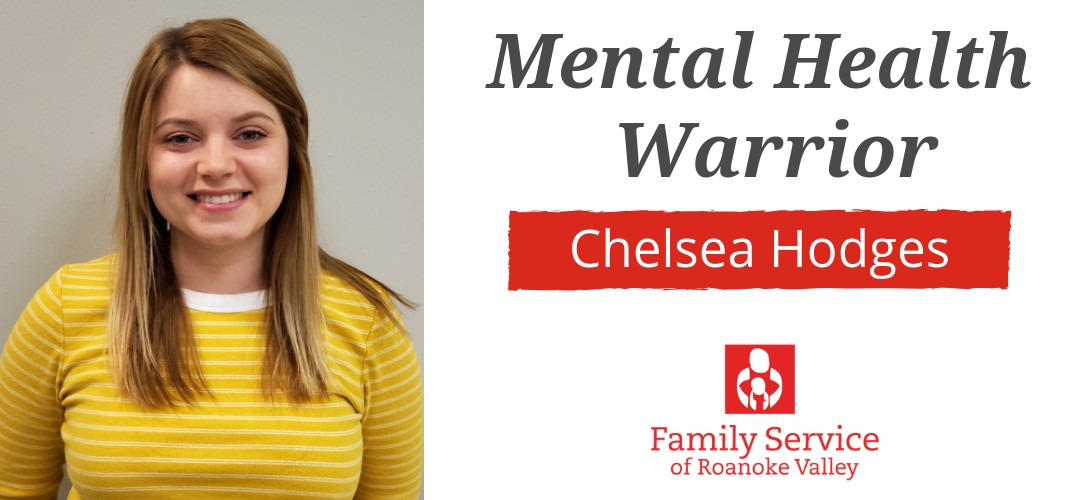Working towards her Masters of Social Work from Radford University, Chelsea Hodges interns with Youth Development as a part of the Community Youth Program in Roanoke Valley. Chelsea earned a Bachelor of Arts in Psychology and is currently a MSW candidate, tentatively graduating in 2020.
The Youth Development program at Family Service has multiple services. This includes anything from therapeutic day treatment to in-home counseling, crisis counseling, community counseling, and the parent aid program. Family Service’s Community Counseling Program Manager, Emily Decarlo, acts as the main point of contact for Chelsea during her internship. While Emily is a primary contact for Chelsea, Chelsea notes that there are several great Quality Mental Health Professional-Child (QMHP-C) individuals that work in the program.
Chelsea doesn’t spend a ton of time at Family Service’s office downtown. Instead, she is hard at work in the community as a part of CYP housed in St. John’s Episcopal Church. CYP is an after-school program for students in fourth to eight grade that collaborates with Family Service. There are a variety of groups and activities for the kids. Family Service’s collaboration with CYP is one of many as Family Service reaches over 20 community partner sites with services including prevention life-skills education for youth, counseling embedded and community sites day treatment, and in-home counseling.
“I’ve had experience with substance abuse (SA) adults and I’ve interned with fourth graders during undergrad,” Chelsea said, “The reason I began interning with Family Service was to complete my first year field placement through Radford University’s Master of Social Work program.”
Chelsea enjoys being able to develop a connection with a client at CYP. In addition, when Chelsea recommended a higher level of services here at Family Service, it was a huge success. The client now has an in-home counselor which has been truly beneficial for them.
Her favorite quote is tied closely to her work: “Advocate for ‘clients’ who may be vulnerable or oppressed in order to enhance their overall well-being, individually and within the community.”


